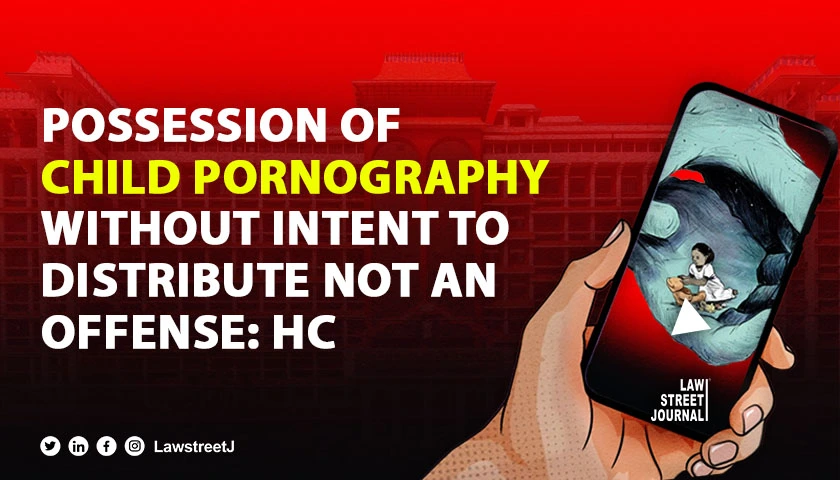Kerala: The Kerala High Court has delivered a significant order clarifying the interpretation of offenses related to child pornography under the Protection of Children from Sexual Offences (POCSO) Act and the Information Technology (IT) Act.
In an order passed on June 19, 2024, Justice A. Badharudeen allowed a criminal revision petition and discharged an accused from charges under Section 15(2) of the POCSO Act and Section 67(B)(b) of the IT Act.
The court noted that the accused was charged with allegedly possessing child pornography on his mobile phone. However, the court found no evidence that the accused had shared, transmitted, or published the material. The court further observed that mere possession or storage of pornographic material involving children is not sufficient to constitute an offense under Section 15(2) of the POCSO Act.
The court stated, In order to bring home an offense under Section 15(2) of the POCSO Act, there should be materials to show that the accused stored or possessed pornographic materials for the purpose of transmitting, propagating, displaying, or distributing the same.
Additionally, the court emphasized that mere possession or storage of pornographic material involving children is not sufficient to constitute an offense. It must be proven that the accused intended to transmit, propagate, display, or distribute the material.
While referring to Section 67(B)(b) of the IT Act, the court referred to Manuel Benny v. State of Kerala and held that automatic or accidental downloading of children engaged in sexually explicit acts or conduct is not an offense under Section 67B.
The court observed, In the present case, the materials collected during the investigation would show that some pornographic messages, which depicted children engaged in sexually explicit acts or conduct, were found on the device of the accused. But there are no materials to show that the petitioner intentionally downloaded, browsed, recorded, shared, transmitted, propagated, displayed, or distributed the same in any manner.
Additionally, the court noted that there were no materials to show that the petitioner intentionally downloaded, browsed, or recorded the same and further held that none of the offenses alleged against the petitioner were made out prima facie.
In conclusion, the court allowed the criminal revision petition, set aside the Special Judges order, and discharged the accused.




![Kerala HC Quashes 498A Dowry Harassment Case Against Live-In Partner, Citing Lack of Relative Status [Read Order]](/secure/uploads/2023/08/lj_5693_1057c042-1e57-4e27-8c9e-25af0ec38ec4.jpg)
![Watching porn on mobile: Kerala HC highlights importance of mother cooked meals, outdoor sports [Read Order]](/secure/uploads/2023/09/lj_9155_Parental_supervision_of_mobile_phone_usage.jpg)
![Lakshadweep MP Mohammed Faizal Disqualified from Lok Sabha After Conviction Suspension Plea Rejected by Kerala High Court [Read Notice]](/secure/uploads/2023/10/lj_9640_87b5fd97-0e05-4ff8-9a99-3be1e4446192.jpg)




